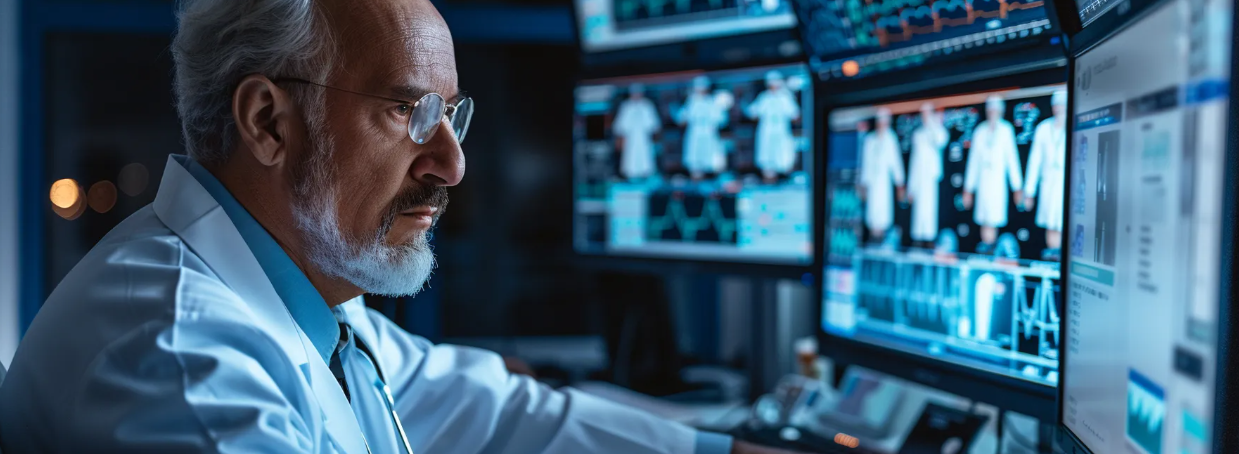Harnessing AI: How Doctors Can Leverage ChatGPT

The landscape of healthcare is constantly evolving, with artificial intelligence (AI) playing an increasingly critical role. ChatGPT, a sophisticated AI-driven tool, is making its mark by offering expansive opportunities for medical professionals. It assists in areas ranging from diagnostic processes to continuous education and patient engagement. For physicians keen on adopting the latest innovations in medical technology, understanding and utilizing ChatGPT could signify a considerable advancement in their practice. Below, we explore the various benefits and considerations for doctors who are looking to integrate this AI model into their work.
Harnessing AI: The Role of ChatGPT in Modern Medical Practice
Artificial intelligence is no longer just a futuristic idea; it’s already transforming medicine. ChatGPT for doctors provides an interactive platform that helps physicians refine diagnostic skills, stay updated on medical research, and interpret patient narratives with ease. Beyond clinical use, it also supports medical administration by streamlining appointment scheduling, automating routine inquiries, and managing patient data, freeing up valuable time for doctors to focus on care.
Training and research are other areas where ChatGPT proves invaluable. Medical students and professionals can practice patient interactions in a risk-free environment, enhancing decision-making skills. Its ability to quickly analyze large volumes of medical literature can uncover insights for evidence-based treatments, helping doctors make faster, more informed decisions that improve patient outcomes.
ChatGPT as a Diagnostic Assistant: Revolutionizing Patient Consultations
Integrating ChatGPT into patient consultations enhances diagnostic support by quickly analyzing medical histories and symptoms, enabling doctors to make more informed preliminary assessments. It can serve as a discreet second opinion, prompting physicians with additional questions or considerations during interactions, which helps reduce the risk of misdiagnosis.
For patients with chronic conditions, ChatGPT can monitor symptom progression over time, supporting doctors in adjusting care plans based on evolving health data. Its ability to analyze medical records alongside lifestyle factors allows for a more personalized approach to treatment, helping physicians tailor care strategies to individual patient needs while improving the efficiency and accuracy of clinical decision-making.
Enhancing Medical Research and Continuing Education with ChatGPT
Medical practitioners must continuously update their knowledge to remain at the forefront of their field, and ChatGPT offers a valuable tool for this purpose. The AI provides instant access to extensive medical information, supporting doctors pursuing further studies or specializations. Its ability to summarize research papers allows professionals to stay informed on the latest findings without reading lengthy articles, improving research efficiency.
For those in academic medicine or research, ChatGPT assists in drafting proposals, designing studies, and preparing manuscripts, reducing workload and enabling greater focus on practical research tasks. Its interactive format also supports exam preparation and self-assessment, helping doctors evaluate their knowledge across diverse medical subjects.
See also: Safety Tips and Techniques for Using Branding Iron for Wood
Improving Patient Engagement and Care Management Through AI Conversations

Effective doctor-patient communication is vital for quality care, and ChatGPT can enhance this interaction by providing continuous support outside scheduled appointments. It can answer patient questions, offer guidance, and encourage active engagement in health management. ChatGPT improves accessibility for patients facing barriers, such as those in rural areas or with mobility challenges, serving as a telemedicine interface that expands healthcare reach.
The AI also aids in health education, translating complex medical terms into understandable language and empowering patients to make informed decisions. It supports patient self-management through reminders for medications, follow-ups, and lifestyle adjustments, promoting adherence to treatment plans and encouraging better health outcomes.
Ethical Considerations and Best Practices for Doctors Using ChatGPT
The integration of ChatGPT in healthcare offers significant benefits but raises critical ethical considerations. Protecting patient privacy and ensuring data security is essential, with strict adherence to HIPAA and other privacy standards. Physicians must maintain transparency with patients, obtaining consent when AI analyzes their data. The potential for misinformation requires that AI-generated insights be verified by medical professionals.
The effectiveness of ChatGPT depends on the quality of input data, making it a supplementary tool rather than a replacement for clinical judgment. Best practices include continuous monitoring of AI performance, providing feedback for improvement, and participating in training to fully understand the system’s capabilities.
Overall, the potential of ChatGPT in the medical field is vast, spanning from diagnostic aid to medical education and patient care management. While it is not without its challenges and ethical considerations, when used judiciously, it can be a phenomenal asset to any medical practitioner looking to enhance their practice in the era of digital health.




